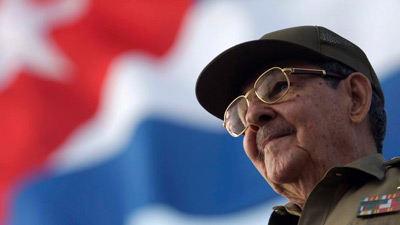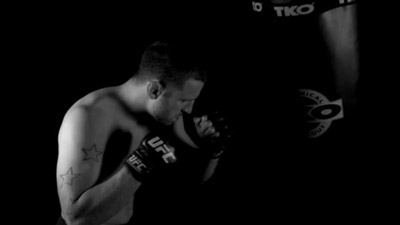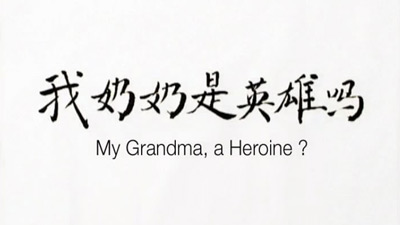A Heroine?
MY GRANDMA, A HEROINE ?
Documentary directed by Tatiana de Perlinghi, produced by MiB * Made in Brussels.
2003
The director's grandmother, Siou Ling, who emigrated from China to Belgium, could save many people during World War II, thanks to the contacts she had into the occupation army.
Siou Ling, the real grandmother of Tatiana de Perlinghi came to Belgium to study chemistry.
During World War II she contributed, at the risk of her life, to save resistance fighters.
In 2002 Chinese television rediscovered this heroine, a woman and a Chinese.
They began the production and filming in Belgium of a long melodramatic saga, telling Siou Ling's romanticized story.
The historical truth is flouted without the slightest scruple and the character of Siou Ling is opportunistically manipulated in the ideological interest of a China which urgently needs to rebuild its image of respectability, particularly with regard to women.
Tatiana de Perlinghi comes to the rescue of her grandmother and tries, through this sensitive and ironic portrait, to re-establish the truth and honour of Siou Ling.
The synopsis hereunder has been translated from French to English from an article in Cinergie, published on 1st of February 2004.
https://www.cinergie.be/actualites/ma-grand-mere-une-heroine-de-tatiana-de-perlinghi
Beyond manipulation
The question mark at the end of the title reflects the astonishment of a young woman.
Tatiana learns, stunned, that Chinese television has decided to seize her grandmother's life to use it as an argument for a big show TV series to be broadcast in prime time on the national channel.
Coming from Shanghaï in 1928 to study, Siou-Ling married a young Belgian doctor, and stayed to live in the Ardennes.
During the Second World War, the young woman, whose Chinese family had known the German military administrator Von Falkenhausen well, obtained the pardon of more than a hundred young Belgians, resistance fighters or hostages, sentenced to death.
Tatiana, of course, knows this story, which is part of the family's past, but why did Chinese television decide to stage it with such pomp and circumstance?
Why do they want at all costs to transform her grandmother into a national icon, the embodiment of the virtues of the Chinese woman?
Why now? What will remain of her true story, diluted in the romance?
Reflecting on all this, Tatiana realises that she knows very little about the young woman who was her grandmother.
As a child, she used to call her "the great empress" because she was so impressed by her and today, at the age of 90, she feels so fragile that she feels the urge to go and meet her.
Armed with her camera, the filmmaker sets off in search of "her chinitude", as she says.
With the help of archive documents and testimonies, she tells the true story of her grandmother.
She goes to the set of the Chinese TV film where she observes, questions.
It soon becomes clear that the scenario told there with melodramatic hands-on effects is far removed from reality.
She then leaves for China to attend the launch of the saga.
She plunges us into the midst of the media hype that (there as here) surrounds such an event.
On the day of the broadcast, she goes to bars and restaurants to film the reaction of the viewers.
In Shanghai, she meets her grandmother's family who stayed behind, with whom she also watches the broadcast of the soap opera and records their reactions.
She goes out of the cities and goes to the countryside or along the Great Wall in search of the true soul of China to try to explain things.
On her return, she finds Siou -Ling, who takes all this with a zest of fatalism, even indifference, as if this manipulation did not concern her:
"They took this story. They have the right to do what they want with it. »
Under the cover of the family documentary, Perlinghi's Tatania tackles very contemporary issues with a candid eye.
How and why is a myth made, what is the nature of what separates this myth from the truth?
At the same time, these questions are never tackled directly, but always through the reactions of the filmmaker or those close to her, with a kind of complicit family intimacy.
Ontological concerns therefore never eclipse "Home Movie".
Through her relationship with her family and particularly her complicity with her grandmother (the way she films the old lady recounting her youth with great liveliness and humour, or that beautiful scene where Siou-Ling looks at old family photos in the company of Tatiana and her sister), the filmmaker sets out to meet her Chinese roots.
The film constantly moves from social questioning to family intimacy, without distinction, and has its own way of leaving the questions it asks open (Chinese, did you say Chinese?..).
The important thing is not there.
It is in this apprehension of the general at the departure of the particular (that's how one builds up one's stock of experiences, isn't it?).
It is also in these beautiful moments of complicity, life, intimacy that the filmmaker offers us, these images of a love that also contain their share of the universal.



